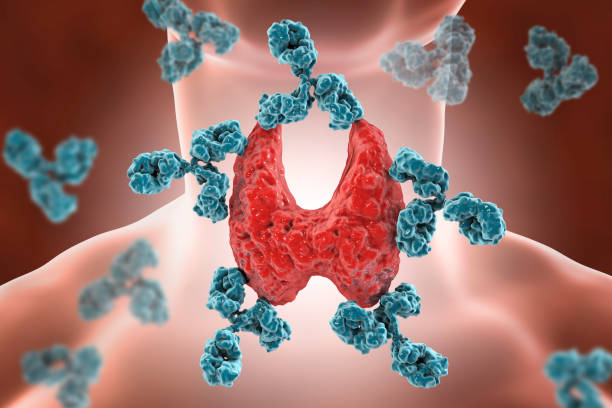
Thyroiditis
Thyroiditis is a general term that refers to inflammation of the thyroid gland. This condition can result from various causes and can manifest in several different forms, each with its unique characteristics. Thyroiditis can lead to temporary or long-term changes in thyroid hormone levels, which can affect an individual’s overall health and well-being.
There are several types of thyroiditis, including:
Subacute Thyroiditis: This is a painful inflammation of the thyroid gland, often following a viral infection. It can lead to a temporary hyperthyroid phase with symptoms like palpitations, anxiety, and weight loss, followed by a hypothyroid phase as the gland heals.
Subacute Thyroiditis: This is a painful inflammation of the thyroid gland, often following a viral infection. It can lead to a temporary hyperthyroid phase with symptoms like palpitations, anxiety, and weight loss, followed by a hypothyroid phase as the gland heals.
Silent Thyroiditis: This form of thyroiditis is usually painless and can result in temporary hyperthyroidism, similar to subacute thyroiditis. However, the underlying cause is often unclear, and symptoms may resolve without long-term thyroid dysfunction.
Postpartum Thyroiditis: Occurring after childbirth, this condition can lead to both hyperthyroidism and hypothyroidism in a cyclical manner. It usually resolves on its own, but some women may develop persistent hypothyroidism.
Riedel’s Thyroiditis: This rare form of thyroiditis is characterized by the replacement of thyroid tissue with fibrous tissue. It can lead to hypothyroidism and compressive symptoms due to the hardening and enlargement of the thyroid gland.
Diagnosis of thyroiditis involves a combination of clinical assessment, blood tests to measure thyroid hormone levels (TSH, T4, T3), and imaging studies like ultrasound or a thyroid scan to evaluate the size and characteristics of the thyroid gland. In some cases, a fine-needle aspiration biopsy may be performed to rule out other thyroid conditions, such as thyroid cancer.
Treatment for thyroiditis varies based on its type and the severity of symptoms. In some cases, especially when thyroiditis is self-limiting, observation and monitoring may be sufficient. Medications like non-steroidal anti-inflammatory drugs (NSAIDs) can help manage pain and inflammation in subacute thyroiditis. If thyroid hormone levels are significantly affected, hormone replacement therapy (levothyroxine) may be prescribed to manage hypo- or hyperthyroidism.
In conclusion, thyroiditis is a term that encompasses various conditions characterized by inflammation of the thyroid gland. The type of thyroiditis and its underlying cause can influence the symptoms and treatment approach. Accurate diagnosis and appropriate management are crucial to address the associated hormonal imbalances and alleviate any discomfort or complications related to thyroiditis.

